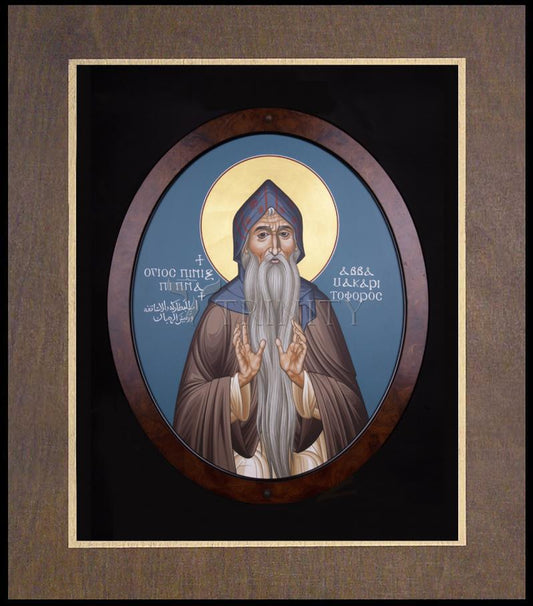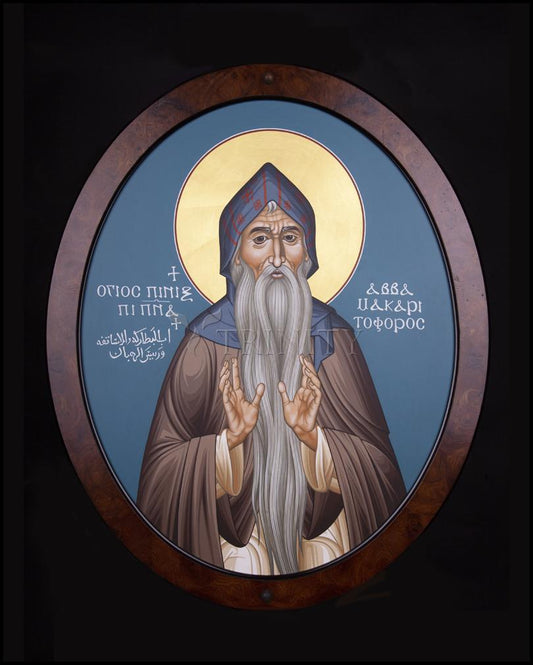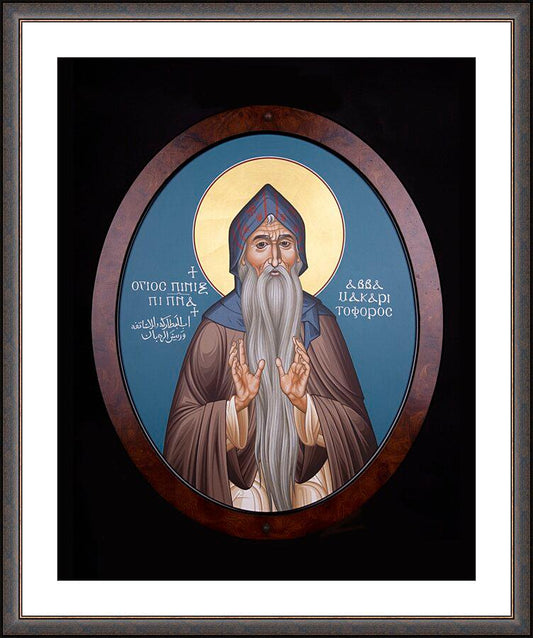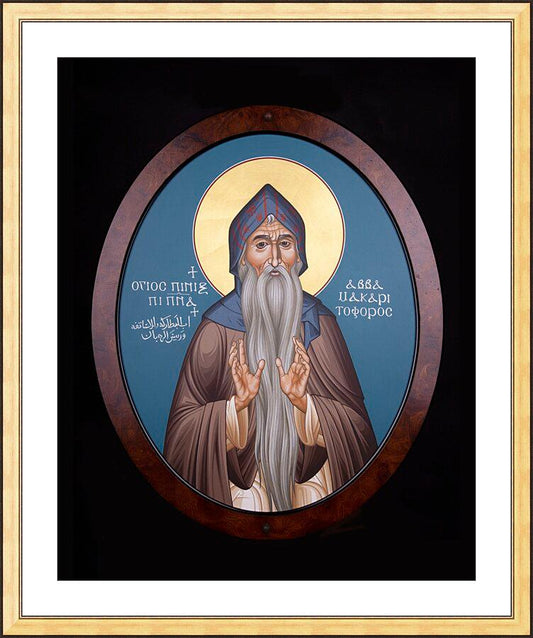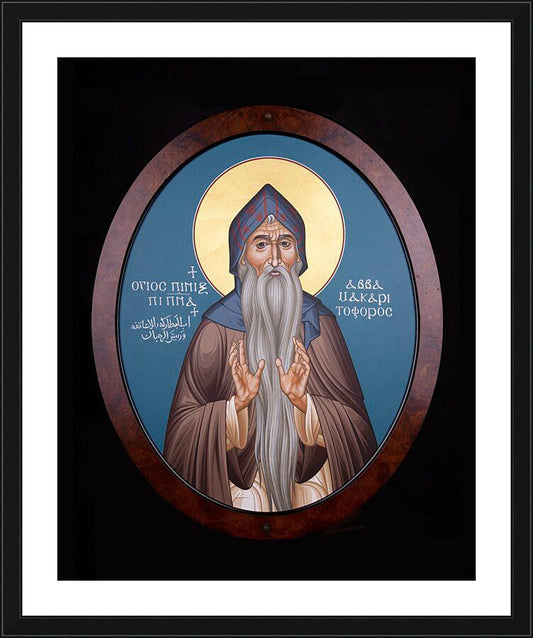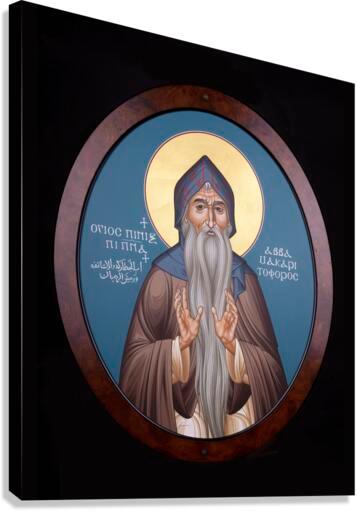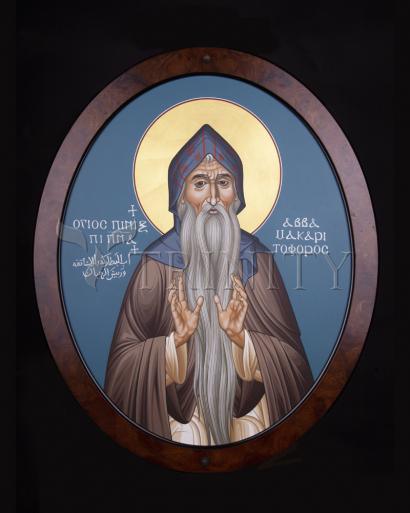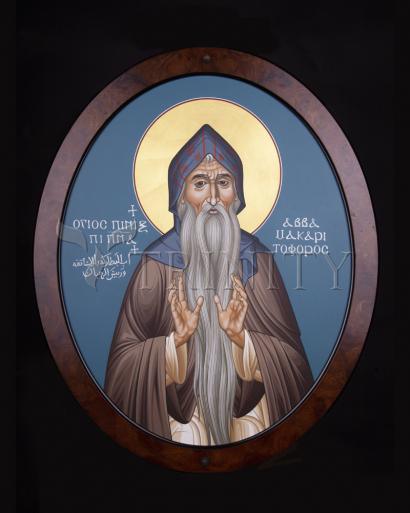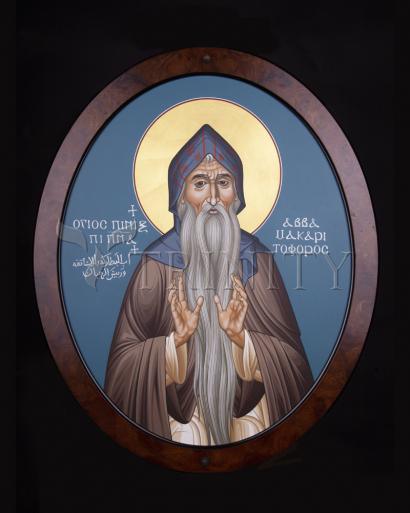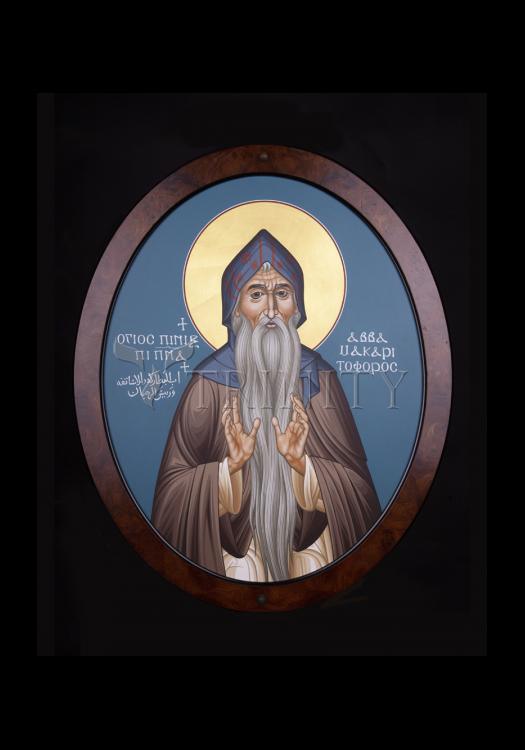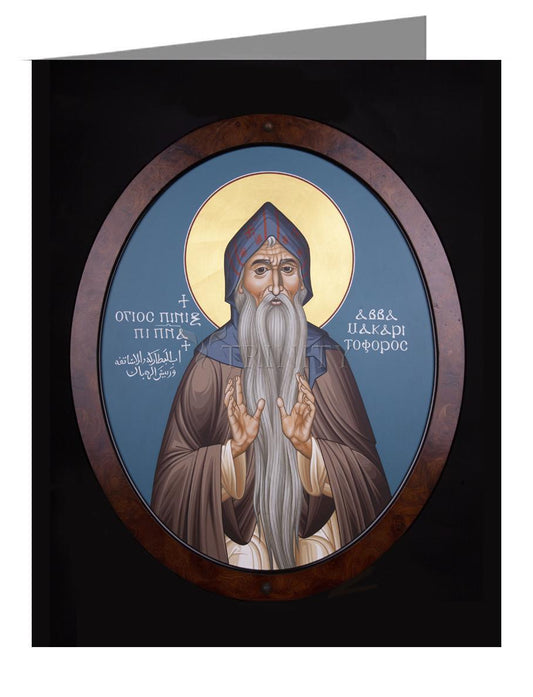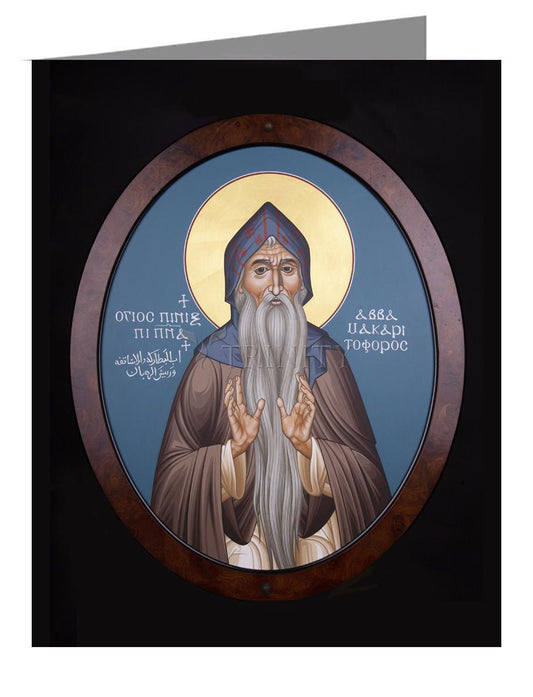ARTIST: Br. Robert Lentz, OFM
ARTWORK NARRATIVE:
St. Macarius is one of the founding fathers of Christian monasticism. St. Anthony the Great knew him and praised his wisdom. When followers gathered around his hermitage in Scetis, he first built a church in which they could pray. Eventually a monastery grew up around the church and the scattered hermitages. To his followers he was the "aged youth," for though he was only thirty when he settled in Scetis, he had the depth and wisdom of a person much older. Arians exiled him to an island in the Nile Delta because he defended the teachings of St. Athanasius the Great, but he eventually returned to his monastery, where he died at the age of 97. He is among the most authoritative of the Desert Fathers of Egypt and is important for his teaching about the centrality of the heart in prayer.
His feast day in the Roman Church is January 15. The Coptic Church celebrates his feast on April 5, and the Orthodox Church on January 19.
Read More
Saint Macarius the Great was from the Thebaid of Egypt, a disciple, as some say, of Saint Anthony the Great. He was born about 331 and struggled in asceticism in the desert at Scete. Although young, he was called "the child elder" because of his great wisdom and austere manner of life. He was ordained presbyter and reposed in 391, at the age of sixty. There are fifty homilies ascribed to him.
It is said of Saint Macarius that he became as a God upon earth, for even as God protects the whole world, so did he cover the faults he saw as if he did not see them. Once he came back to his cell to find a thief taking his things and loading them on a camel. Macarius' non-possessiveness was so great that he helped the thief load the camel. When the camel refused to rise, Macarius returned to his cell and brought a small hoe, said that the camel wanted the hoe also, loaded it on, and kicked the camel telling it to get up. The camel obeyed Macarius' command, but soon lay down again, and would not move until everything had been returned to Macarius. His contemporary, Saint Macarius of Alexandria, was so called because he came from Alexandria and was therefore of that Greek-speaking colony; while Saint Macarius the Great is also called "of Egypt," that is, he belonged to the ancient race native to Egypt, the Copts.



